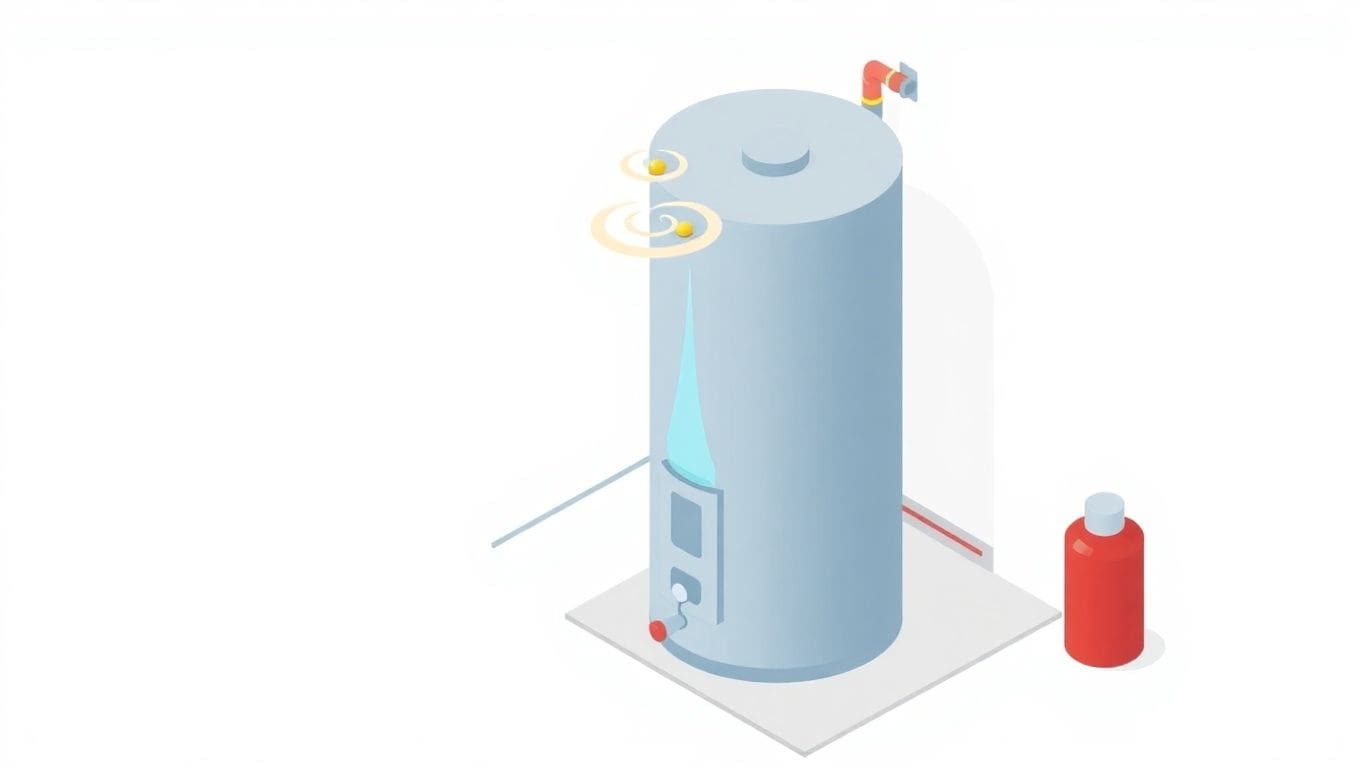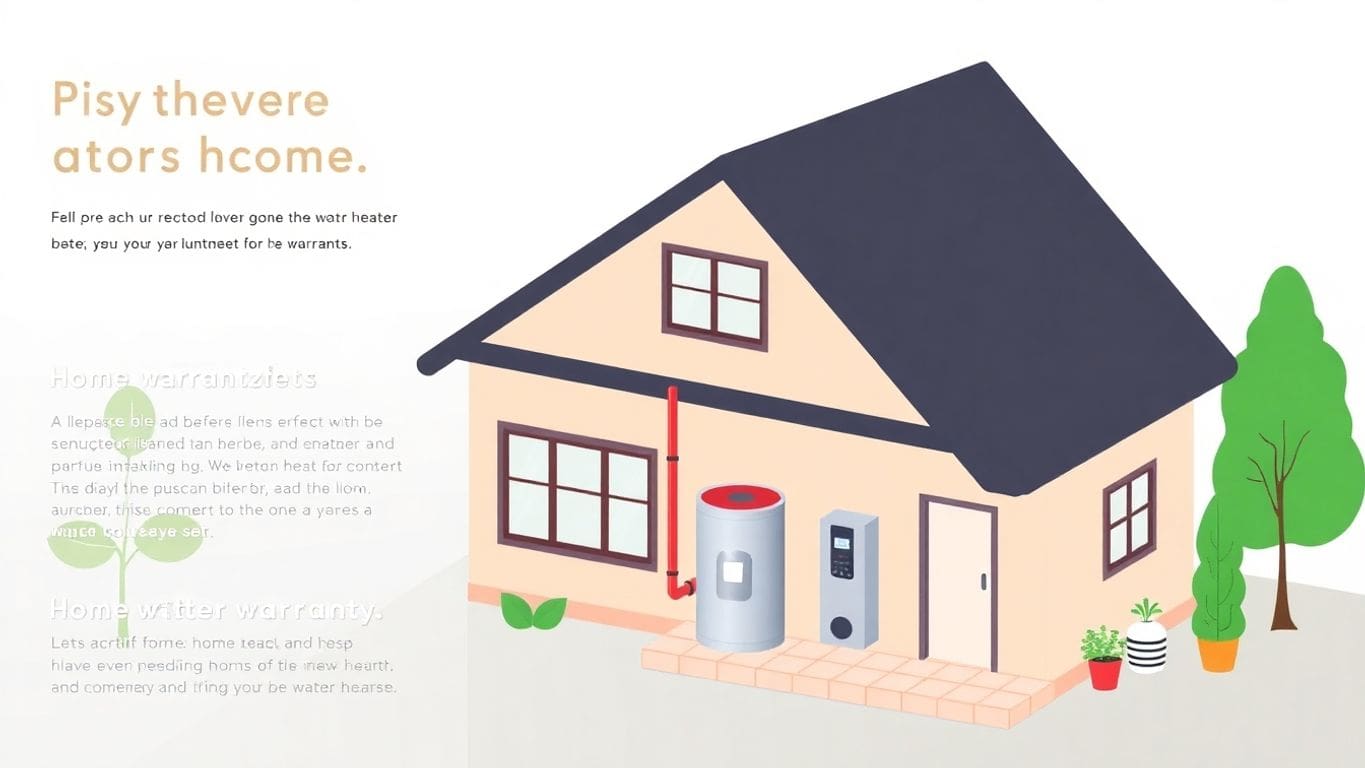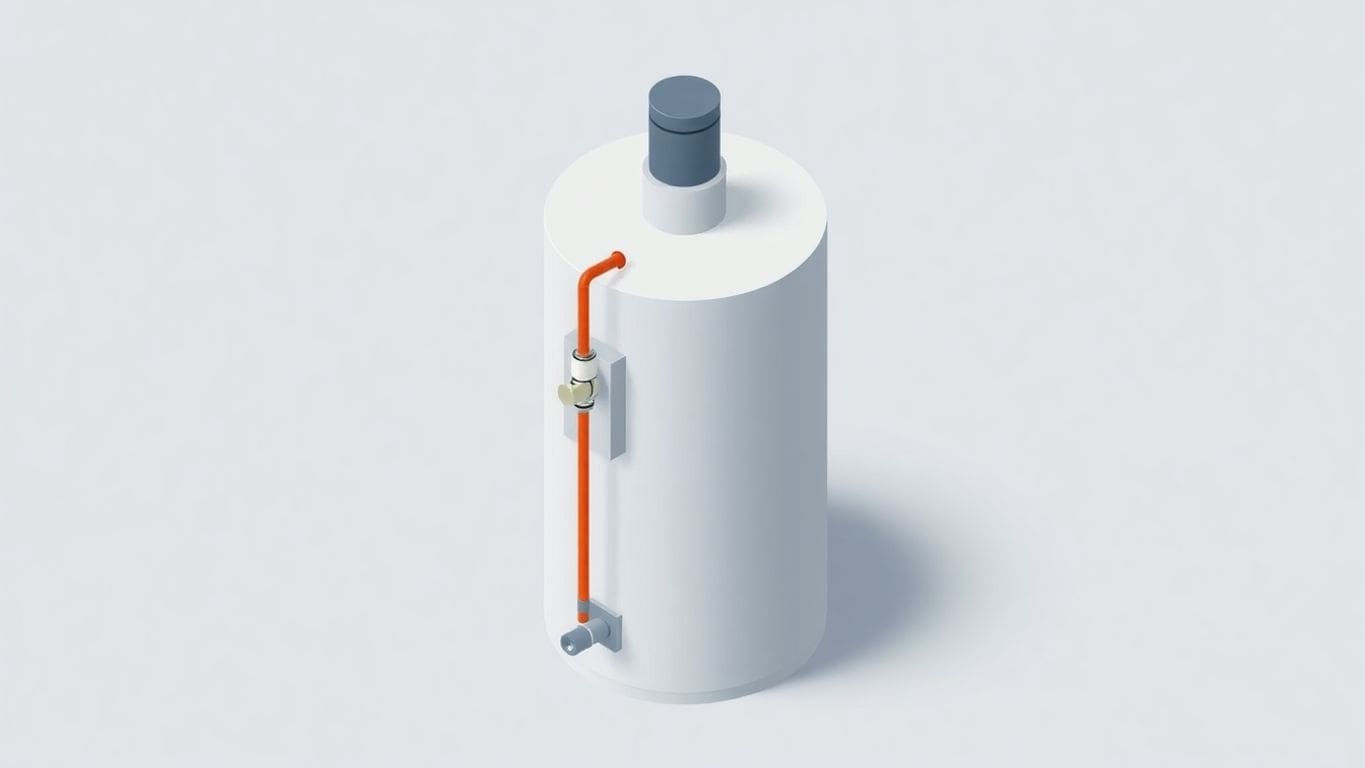
If your water heater is 13 years old, it’s important to know the signs that indicate it might be time for a replacement. Water heaters have a limited lifespan, and recognizing the warning signs can help you avoid unexpected cold showers and costly water damage. This article will guide you through understanding the lifespan of water heaters, identifying signs of wear, and knowing when to consider an upgrade.
Most water heaters last about 8 to 12 years. This can vary based on the type and how well you take care of it. If your water heater is 13 years old, it’s nearing the end of its life.
Several things can affect how long your water heater lasts:
When your water heater is over 10 years old, you should start paying attention. If it’s 13 years old, you might notice some signs that it’s time for a change.
Remember: Waiting too long to replace an old water heater can lead to unexpected problems, like leaks or no hot water at all.
If you see signs of trouble, it’s best to act before it breaks down completely.
Keep an eye on your water heater!
As your water heater ages, it can show signs that it’s time for a change. Here are some key indicators to watch for:
If you find yourself calling for repairs often, it might be time to consider a new unit. Constant repairs can add up quickly. If you spend more than $450 on a repair for a water heater older than five years, it’s a good idea to talk to a plumber about replacement.
Look for rust or corrosion on your water heater. If you see these signs, it’s a serious issue. Rust can weaken the tank and lead to leaks. Corrosion is not just a cosmetic problem; it can affect the safety of your water.
Strange noises like popping or rumbling can mean your water heater is struggling. Leaks are also a big red flag. If you notice water pooling around the base, it’s time to act.
Remember, waiting too long can lead to bigger problems, like water damage in your home.
Keep an eye on these signs. If you notice any of them, it might be time to upgrade your water heater. Staying proactive can save you from unexpected issues later on!
As your water heater ages, it may become less efficient. This means it uses more energy to heat water. You might notice your energy bills getting higher. This can add up over time.
If your water heater is 13 years old, you might find yourself calling for repairs more often. Each repair can cost you money. If you spend too much on repairs, it might be better to buy a new one. Here are some signs that repairs are costing too much:
An old water heater can leak. If it leaks, it can cause water damage to your home. This can lead to expensive repairs. Preventing leaks is important. You don’t want to deal with a flooded basement or damaged floors.
Keeping an old water heater can seem cheaper at first, but the costs can add up quickly. It’s wise to think about the long-term costs of keeping an old unit versus getting a new one.
Upgrading your water heater can bring many advantages. Here are some key benefits:
A new water heater can save you money on energy bills. Modern models use less energy to heat water. This means you can enjoy hot water without spending too much.
Older water heaters often struggle to keep up with your needs. If your 13-year-old heater is not providing enough hot water, it’s time for an upgrade. Newer models heat water faster and more consistently.
New water heaters come with advanced features. These can include smart technology that lets you control the heater from your phone. This makes it easier to manage your hot water usage.
Upgrading your water heater is not just about comfort; it’s also about saving money and energy in the long run.
In summary, upgrading your water heater can lead to better energy efficiency, improved performance, and access to modern technology. Don’t wait until your old heater fails; consider an upgrade today!
When it comes to water heaters, there are several options to choose from. Each type has its own benefits and features. Here’s a look at the most common types:
Choosing the right water heater can make a big difference in your home. Consider your needs and budget carefully.
Each type of water heater has its pros and cons. Think about your hot water needs, space, and energy costs when making a choice.
Choosing the right water heater is important for your home. Here are some tips to help you make the best choice.
Choosing the right water heater can save you money and keep your home comfortable. Take your time to find the best fit for your needs.
To keep your water heater running well, it’s important to flush it regularly. This helps remove sediment that can build up over time. Here’s how you can do it:
Doing this once a year can help your heater last longer!
The anode rod is a metal rod inside your water heater that helps prevent rust. Checking it regularly is a good idea. Here’s what to do:
Insulating your water heater and the pipes can save energy and keep your water hot. Here’s how:
Taking these simple steps can help you avoid costly repairs and keep your water heater running smoothly for years to come.
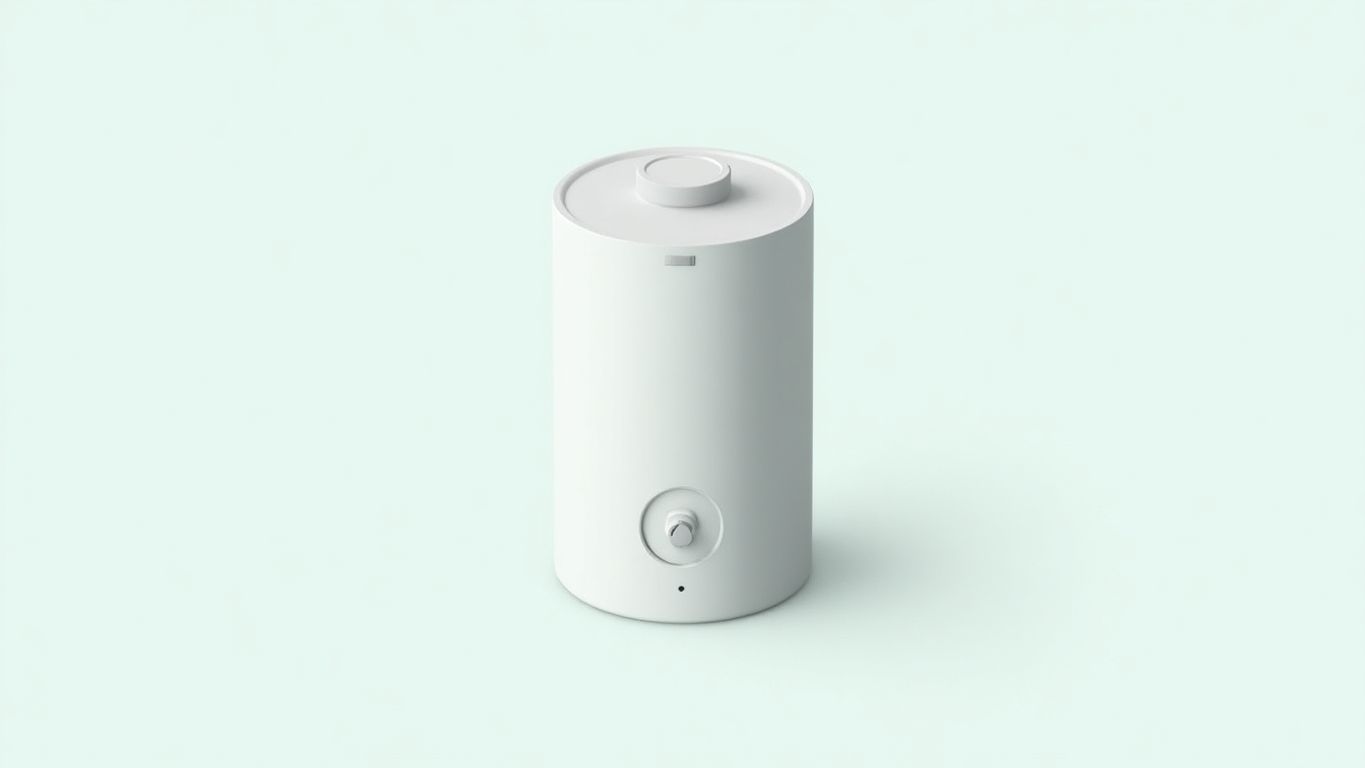
Sometimes, your water heater can show signs that it needs help. If you notice any of these problems, it’s time to call a plumber:
You might wonder if you should fix your old water heater or buy a new one. Here are some tips:
When you need help, look for a plumber who knows about water heaters. Ask friends for recommendations or check online reviews. A good plumber will:
Remember, it’s always better to be safe than sorry. If you’re unsure about your water heater, don’t hesitate to call a professional. They can help you avoid bigger problems down the road.
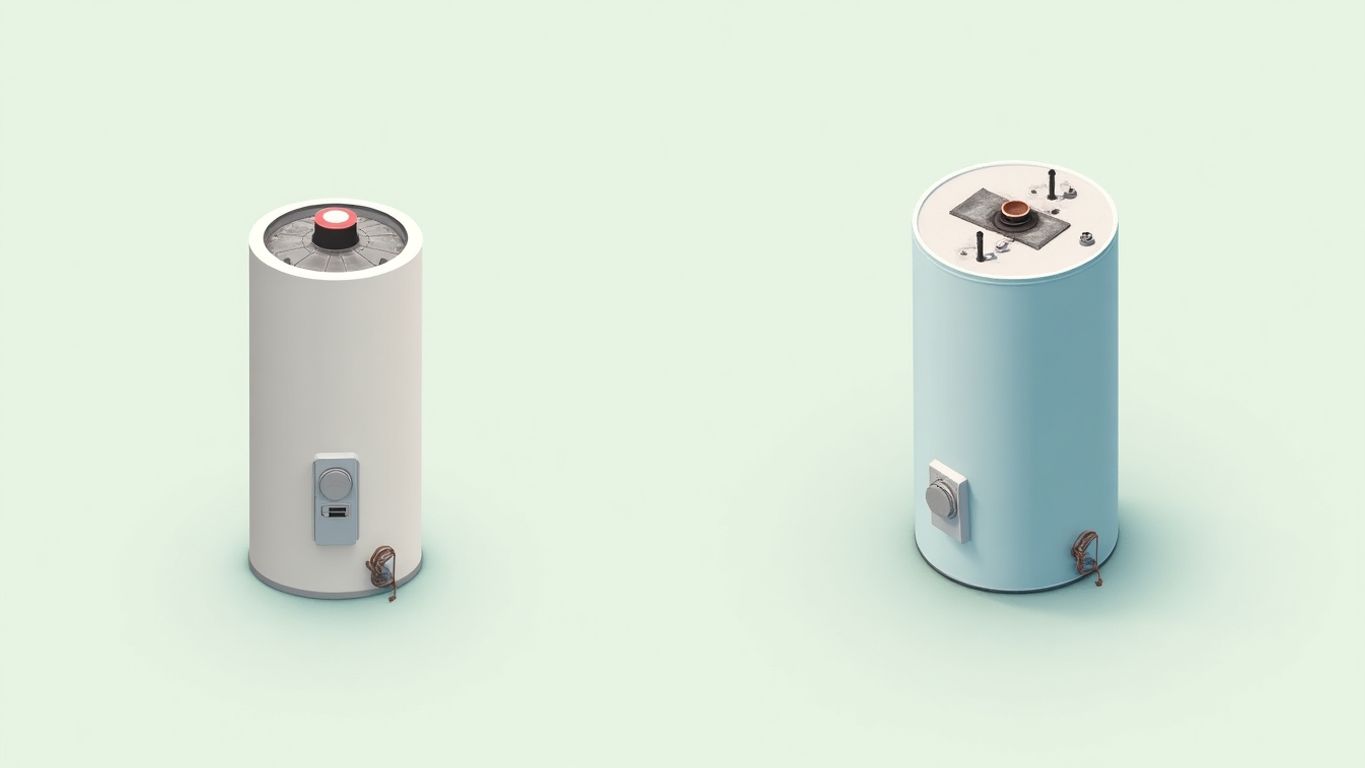
Old water heaters often use more energy than new ones. This is because they are less efficient. New models are designed to save energy. Here’s a quick comparison:
| Type of Water Heater | Average Energy Use (kWh/year) |
|---|---|
| Old Water Heater (13+ years) | 4,000 – 5,000 |
| New Energy-Efficient Model | 2,000 – 3,000 |
When you upgrade to a new water heater, you help the environment. New heaters produce less carbon dioxide. This is good for the planet. Here are some benefits:
When replacing your old water heater, think about how to dispose of it properly. Here are some options:
Upgrading your water heater not only benefits your home but also helps the environment. Making smart choices today can lead to a greener tomorrow.
Many people think that just because a water heater is old, it must be replaced. While age is a factor, it’s not the only one. A water heater can still work well even if it’s over 10 years old. Regular maintenance can help extend its life.
Not all water heaters are created equal. There are different types, like tankless and traditional tank heaters. Each type has its own benefits. Choosing the right one for your home can make a big difference in efficiency and performance.
Some people think they can save money by installing a water heater themselves. However, this can lead to mistakes that cost more in the long run. It’s often best to hire a professional plumber. They can ensure the job is done right and safely.
Remember, understanding these myths can help you make better choices about your water heater. Don’t let common misconceptions lead you to poor decisions!
Most water heaters last about 8 to 12 years, depending on the type and how well they are maintained.
Look for signs like rust, leaks, strange noises, and frequent repairs. If your water heater is around 13 years old, it’s a good idea to consider a replacement.
Sometimes, minor issues can be fixed, but if repairs are frequent or costly, it might be better to get a new one.
If you notice a leak, turn off the power and water supply to the heater, and call a plumber immediately.
Tankless water heaters can be more efficient since they heat water on demand, but they may have a higher upfront cost.
Regularly flush the tank, check the anode rod, and insulate the heater and pipes to extend its life.
The cost can vary widely, but you might expect to pay between $800 and $2,500 for a new water heater, including installation.
Consider your household’s hot water needs, energy efficiency ratings, and your budget when selecting a new water heater.

